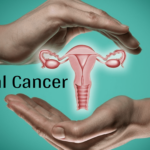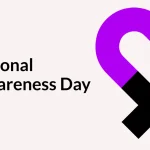Cervical Cancer Awareness Month: 4 Ways to Protect Yourself From Cervical Cancer
Reading Time: 2 minutes
 1441
1441
Page Contents
How To Protect Yourself From Cervical Cancer
Cervical cancer was once a leading cause of death in the United States. It occurs when abnormal cancerous cells develop in the cervix. These cells multiply, bind together, and form tumours that surgery can remove. Cervical cancer is characterized by pelvic pain, vaginal bleeding and unusual discharge among other symptoms.
Today, prevention and screening have largely reduced its impact. According to the National Cancer Institute about 13960 women are projected to receive a diagnosis of cervical cancer and about 4310 will die from the disease. January is considered the cervical cancer awareness month, a perfect opportunity for people to raise awareness about cervical cancer. Here are ways through which you can protect yourself from cervical cancer;
Regular Pap Smears and HPV Tests
Schedule Pap Smears based on your healthcare provider’s recommendations preferably starting at the age of 21. Pap Smears detect early abnormal changes in the cervical cells thus allowing for timely intervention. Women should go for cervical cancer screening every five to ten years after hitting the age of thirty.
HPV Tests
Human Papillomavirus (HPV) is a virus that causes cancers later in life An HPV test collects cells from your cervix to check for the prescence of cancer. There are over 100 types of HPV strains in the world and about 14 of them are known to cause cancer. They are considered the “high-risk” types of HPV. The HPV 16 and HPV 18 strains cause approximately 70% of all cases of cervical cancer. HPV tests are often conducted alongside Pap smears and screen for high-risk strains of the HPV (Human Papillomavirus). Detection of the Human Papilloma Virus helps to manage the risk of developing cervical cancer.
HPV Vaccination
HPV Vaccine protects against cervical cancer and genital warts. It also protects against anus, penis, vulva or vaginal cancer. Food and Drug Administration (FDA) approved the use of Gardasil 9 vaccine for both males and females ages 9 to 45. HPV infections have dropped by 88% among teenage girls and 81% among young adult women.
Quit Smoking
According to a study at the Montefiore Medical Centre in the Bronx, out of 60 women who had advanced cervical cancer 85% of them were smokers. Evidence also shows that the remaining 15% had exposure to passive smoking probably through the spouses who smoked. Dr. Carolyn D. Runowicz who wrote the study stated, ” Cervical cancer and abnormal Pap tests are related to smoking and that deserves major headlines,”
By incorporating these practices into your lifestyle, you are taking significant steps to safeguard your cervical health. It is important to consult with your healthcare provider for advice based on your health history and circumstances.
 1441
1441








